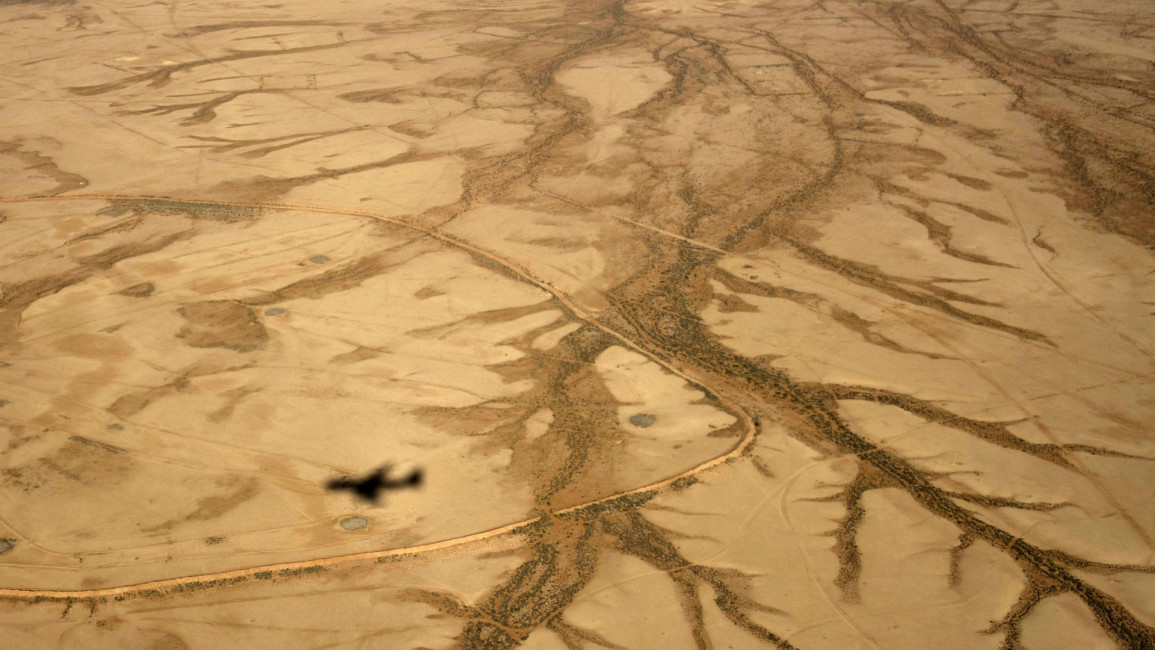
Threats greater than terror: Desertification and drought
The United Nations inaugurated the World Day to Combat Desertification and Drought on 17 June 1995 to highlight ways to prevent desertification and recover from drought.
According to UN estimates, 52 percent of the world's agricultural land is moderately or severely affected by soil degradation, and affects 1.5 billion people globally.
Further, drought and desertification are causing the annual loss of 120,000 square kilometres of land around the world, an area larger than the size of the UAE, Kuwait, Qatar and Bahrain combined.
This has a severe impact on food security, biodiversity, socio-economic stability and development.
The UN estimates some 50 million people will be displaced over the next decade due to the effects of drought and desertification.
The Arab world
| An estimated 68.4 percent of the total area of the Arab world is arid. |
The Arab world contains around one third of the world's deserts. Most Arab countries have insufficient water resources, and this makes the region especially vulnerable to desertification and drought.
According to a 2011 report published in the Middle East Journal of Scientific Research, an estimated 68.4 percent of the total area of the Arab world is arid.
However, even with these risk factors, mismanagement of water resources and unsustainable land practices are rife across the region. For example, in Saudi Arabia, a predominantly arid country with no rivers, the daily per capita water use is double the European average.
Furthermore, Iraq, which was considered as a regional breadbasket in the 1970s, has lost a significant amount of its farmland to various wars and neglect.
The effects of drought and desertification across the region are not only environmental, but also come at an extreme human cost.
Drought and land degradation in rural and pastoral areas forces rural residents to migrate to urban areas in search of a livelihood. This not only decreases agricultural output, but also increases the strain on urban resources and infrastructure. In some cases it may even lead to violent conflict.
According to a report by the World Bank, "Droughts, flooding, and desertification lead to increased competition over environmental resources and contribute to human conflicts such as those in Darfur, one of the greatest humanitarian crises of this century". With the escalation of such extreme environmental problems, instability, large-scale migration, displacement and resource conflicts are almost a certainty.
Given the gravity of these dangers threatening the Arab region, which are far greater to Arab populations than the threat of terrorism, we should heed the call of UN Secretary General, Ban Ki-moon on this day.
"We need to change course and start securing every hectare of land that can provide food or freshwater and rehabilitate all the degraded land that we can," said Mr. Ban, who added: "Our lives and civilizations depend on the land. Let us invest in healthy soils to secure our rights to food and freshwater."


![President Pezeshkian has denounced Israel's attacks on Lebanon [Getty]](/sites/default/files/styles/image_684x385/public/2173482924.jpeg?h=a5f2f23a&itok=q3evVtko)



 Follow the Middle East's top stories in English at The New Arab on Google News
Follow the Middle East's top stories in English at The New Arab on Google News


